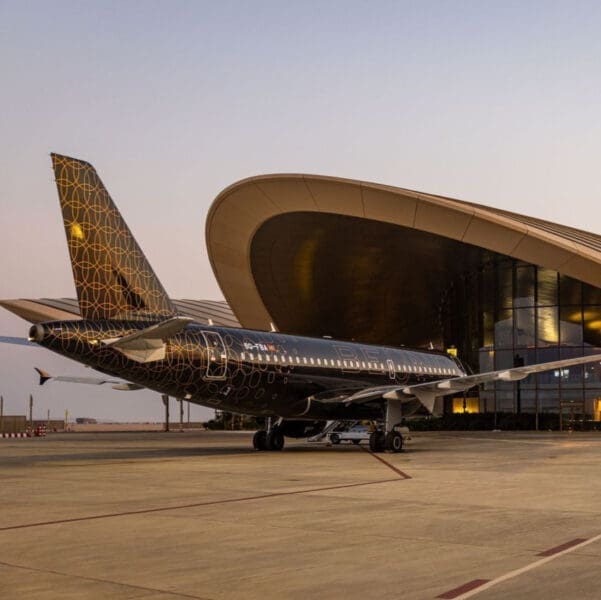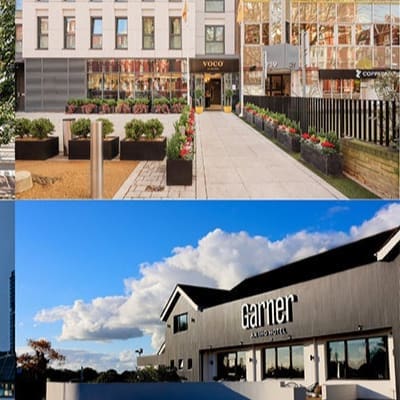With lockdowns lifting and borders opening, millions of Europeans are heading off for a summer holiday – even if their plans are rather different to previous years.
 This year, more holidaymakers are opting for staycations as ongoing coronavirus concerns lead many to drive or take the train to their destination rather than fly.
This year, more holidaymakers are opting for staycations as ongoing coronavirus concerns lead many to drive or take the train to their destination rather than fly.
In the UK, when holidaying at home restrictions were lifted in June, one staycation was booked every 11 seconds. In Germany, the country’s Baltic coast is enjoying renewed popularity among families who may have previously headed further afield. Only 15 percent of German hotels remain closed, according to data provider STR.
“There’s definitely a big effort from holidaymakers and the industry to salvage the summer,” says Jessica Jahns, head of EMEA Hotels & Hospitality Research at JLL. “Rather than stay home, we’re seeing domestic travel increase and UK travelers, for example, swap Tuscany for Tynemouth.”
Resorts in fashion
Across Europe, resorts have been quicker to restart than cities. Spain’s pilot programme in June saw some 10,900 German tourists arrive in Palma de Mallorca, Ibiza and Menorca, leading Spanish resorts to record higher occupancy than hotels in Barcelona and Madrid, according to STR.
London, in contrast has fallen from the top to the bottom of the 10 most-booked European destinations, according to the World Travel & Tourism Council.
That’s in part due to travelers opting for beaches and countryside where people are largely outdoors and where spaces are less populated than urban areas, as social distancing remains in force in many European countries.
Plus, in many cities, the cultural attractions and nightlife that are usually a big draw are significantly reduced – if they’re open at all.
“There’s also a strong correlation between the wider recovery of European cities and the reality of what life is like right now,” says Jahns. “Some museums and theatres are still closed while restaurants and bars are still coming to grips with social distancing.”
Yet equally there are benefits to visiting quieter cities; this summer, queueing times at Rome’s reopened Colosseum and the Uffizi gallery in Florence are drastically reduced.
Regaining lost ground
After occupancy and revenue plunged in April and May for Europe’s hotels, momentum is gradually building as some people look to book end of summer getaways.
Forward occupancy until the end of September is averaging between 10 and 15 percent for Europe’s major cities, according to STR data – still down significantly on normal but showing some green shoots for struggling hoteliers.
“With many countries still easing out of lockdown, people are reluctant to book far in advance even when hotels offer fully refundable bookings,” says Jahns.
“Even if people venture away from their home countries, it’s also going to be largely Europeans travelling independently in Europe rather than the higher spending American tourists or the usual block bookings from Asian tour groups. And business travel is non-existent right now.”
Regardless of destination, health and hygiene remain big concerns for holidaymakers despite hotel chains publicizing their stringent cleaning protocols and tourism boards in countries like Portugal developing initiatives such as Clean and Safe to indicate which hotels have enhanced health and safety measures.
Equally, issues such as travel insurance cover and cancellation fees are also influencing holidaymakers’ decisions.
“A compliant large hotel chain may seem a more trustworthy option than a smaller independent hotel or a private apartment, while from a financial perspective, booking a flight before an air bridge is actually opened may feel risky at a time of uncertainty,” Jahns says.
And that uncertainty is unlikely to dissipate anytime amid further COVID-19 spikes.
“Until a vaccine is found, a lot of people will remain nervous and will prefer to stay closer to home,” says Jahns. “We’re still very much in the midst of things right now but there’s a strong possibility that this could ultimately change the traveler mindset in the longer term and create a shift in the way people choose to holiday.”
Check our report on COVID-19: The impact and implications for hotel stakeholders in Europe



















